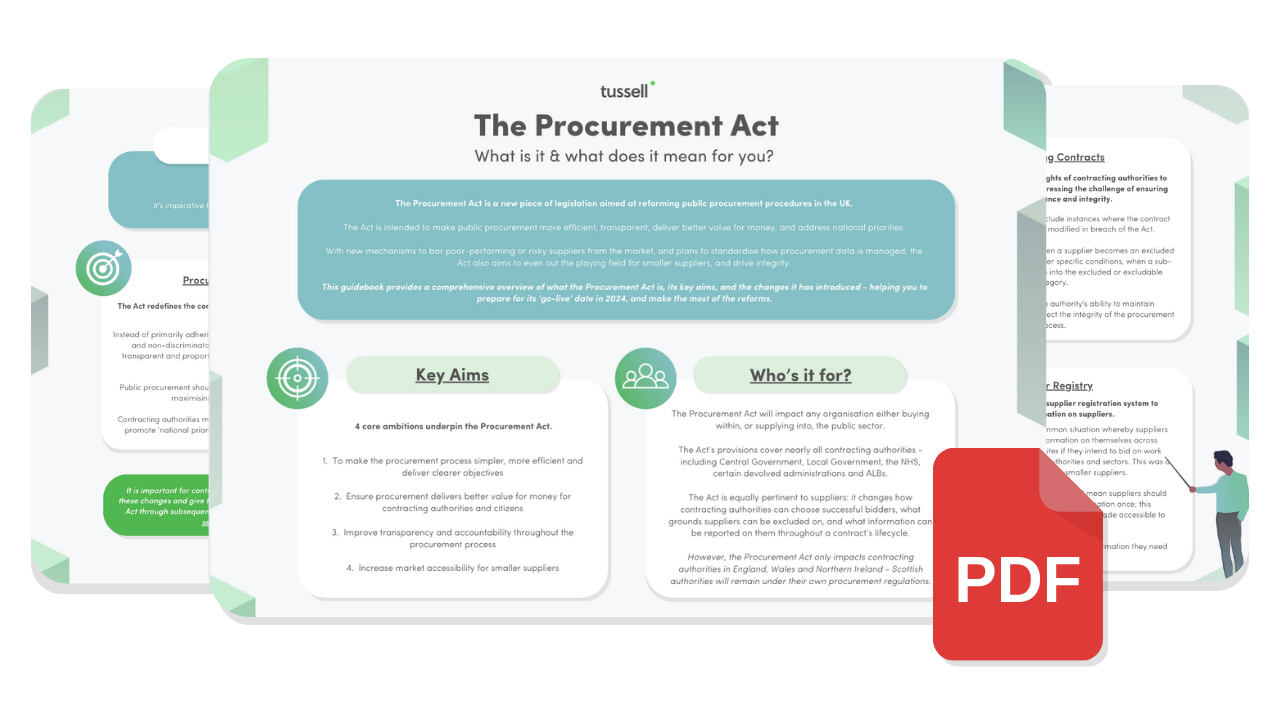Contents:
- Introduction
- The AI Procurement Tracker
- What is the data telling us?
- What do the experts think?
- What is the methodology?
- AI Tracker - in the media
Last updated: 7th April 2025
Introduction
Artificial Intelligence (AI) is capturing the world’s imagination, and that includes the UK public sector.
Public bodies have been purchasing AI-based solutions for well over a decade, but recent breakthroughs - specifically in Generative AI since the launch of ChatGPT in late 2022 - have spurred a fresh wave of interest in how government could benefit from this rapidly-evolving technology.
Whilst loud voices debate the future of AI, we at Tussell wanted to cut through the noise and look at the facts.
We’ve set out to answer a simple question: How much has the government spent on procuring AI so far, and what is it buying?
Introducing: Tussell's AI Procurement Tracker.
Inspired by an earlier tracker we produced to measure Covid-related procurement contracts, this new Tracker draws on data from our own market intelligence platform to map the landscape of AI adoption across government.
Our AI Procurement Tracker is your go-to source of fact-checked data to understand which AI capabilities the government is buying, who from and at what cost.
This will be essential reading if:
-
your company supplies tech to government and you want to follow the latest market trends, or
-
you work in a public body and want to know how your peers are
adapting to rapid change, or -
you are a journalist, commentator or policy advisor in search of
hard facts to back up your research.
The AI Procurement Tracker
Between Jan 2018 and the end of March 2025:
The UK public sector awarded
1,161 AI contracts
In total, they were worth
£2.5 billion
To download the full underlying data, click here.
April 2025 Update: key takeaways
-
In the first quarter of 2025, the UK public sector awarded just over 60 AI-related contracts, totalling £26 million. This is already more - both in number and value - than was awarded in all of 2018, and it's close to surpassing the total for 2019.
-
30 new AI-related contract were awarded in March, collectively valued at £12.8 million.
-
Notable contracts include:
-
The Centre for Environment, Fisheries & Aquaculture (CEFAS, and ALB of the Defra) awarded a £48k contract to Envision Management Consultants to develop a "marine litter annotation service", which CEFAS would use to " train machine learning algorithm to automatically detect litter, analyse and report on marine litter".
-
Peterborough City Council awarded a £36.5k contract to Datanexa to develop an "Index [that predicts] falls and intervenes earl"; "this model aims to enhance the quality of life and longevity of elderly people."
-
*
Chart 1: Value and volume of awarded contracts, since 2018
This chart shows that the volume of AI-related awarded contracts has increased in five of the last six years, and grew ten-fold from 32 in 2018 to 306 in 2024.
The volume of AI contracts awarded between 2023 and 2024, in particular, shot up by 43%.
The spike in award value in 2021 is due to a £1 billion 'Supercomputing 2020+' contract, awarded by the Met Office to Microsoft.
Adjusting for this exceptionally large contract the overall value of AI contracts awarded each year has also tended upwards.
The fact that this appeared to fall in 2024 is interesting as it suggests that as the cost of AI-related capabilities is falling as the technology becomes more ubiquitous.
Chart 2: Largest buyers of AI by contract value, since 2018

Chart 3: Largest suppliers of AI by contract value, since 2018

Chart 4: Breakdown of AI-related contract value by theme
We ran an experiment to see whether Gen AI itself - specifically, ChatGPT - could categorise these AI-related contracts, based on their general theme or focus.
Here are the results:
Below, we've spotlighted some key contracts from these categories to illustrate what each means.
-
Predictive Analytics - The Met Office’s supercomputer contract dominates this category, worth £1.03bn over a ten-year period, this Microsoft contract will enable better weather forecasts and uses AI to improve this over time.
-
Image Recognition - Department of Health and Social Care has enlisted the help of Kheiron Medical Technologies to undertake the Mia Real World Testing program, this will use AI to identify breast cancer in women that was missed by human doctors.
-
Automation - DWP is working with UiPath to automate front and back end tasks, the contract is worth nearly £10mn over a three year period.
-
Machine Learning - The BBC is using machine learning to improve its subtitling and audio descriptions, Red Bee Media won the nearly £30mn in 2018.
-
Natural Language Processing (NLP) - The Department for Education has created a chatbot with the help of Inform Communications for its National Careers Service, the contract is worth just less than £1mn.
-
Data Analysis - The Police & Crime Commissioner for Northamptonshire has awarded a £20mn contract to CDS Support to use AI to help examine evidence and provide analysis.
-
Research into AI - The University of Bristol has awarded HPE a £176mn contract to create Isambard AI, this will look into AI safety and aims to establish the UK in a position of leadership in terms of AI.
A November 2024 article by The Guardian - which utilised data from this Tracker - also notes how the public sector is utilising AI to summarise correspondence from citizens, inform immigration decisions, spot benefits fraud, deploy chatbots and trial facial recognition software.
Chart 5: Top 5 AI frameworks (by value of call-off contracts)

Many of the identified AI contracts were awarded via a framework agreement or Dynamic Purchasing System.
These preferred-supplier agreements enable contracting authorities to expedite their procurement, by publishing and awarding tenders to a closed group of pre-vetted suppliers.
Tussell's framework intelligence shows that of the 1,131 contracts awarded since Jan 2018, 405 - or just over a third - were awarded via a framework of DPS.
The wider public sector, by comparison, awards roughly 1 in every 4 contracts via a framework, meaning buyers seem to be harnessing frameworks more frequently when purchasing AI-related services.
Want to dig into the data for yourself? Download it here.
What is the data telling us?
We think that the amount of money spent so far on AI is big, but not as big as the hype surrounding Gen AI would suggest.
£2.5 billion sounds like a lot, but remember: nearly half this value stems from a single billion pound contract between the Met Office and Microsoft in 2021.
But even when taken at face value, £2.5 billion still only accounts for roughly 1.8% of the total value of all IT Services and Software contracts awarded by the public sector over the Jan 2018 - Dec 2024 period (£134bn)
In other words, the AI Procurement Tracker seems to show that there is a lot of excitement around AI, but it hasn’t filtered into public procurement in a meaningful way – yet!
What do the experts think?
We approached two domain experts for their comments on the data – Joe Hill, Policy Director at leading think tank Reform, and Sean Williams, Founder and CEO of AutogenAI.
Asked to reflect on the AI Procurement Tracker's findings, Joe Hill pointed out that many contracts have been awarded to non-specialist firms, large digital companies and systems integrators:
"This shows the government has begun its AI adoption journey, and that it's largely buying technical support rather than buying software directly."
As public sector familiarity with and trust in AI increases, experts are predicting a continued uptick in AI-related procurement. Sean Williams says:
"Artificial intelligence spend is only going to increase over the next months and years.
"Generative AI is a paradigm shifting general purpose technology - like the printing press, electricity or the internet. We are in the equivalent of 1995 for the internet with generative AI. Over the next decade it will transform entire tranches of government, business and society.
This report shows the first stirrings of the change that is coming.”
Reform’s Joe Hill has a similar prediction. He says we'll "see a growth in AI-related procurement, and probably a shift from procuring external support to building bespoke solutions, to buying off-the-shelf software and using open-source products."
Frankly, we at Tussell don’t have all the answers, but we can contribute to the debate by cutting through the data.
Going forward, our AI Procurement Tracker will be updated monthly to monitor trends and to highlight interesting themes.
Each month we will also invite experts to interpret the data and use it to try to look around the next corner. If you would like to contribute to the discussion, get in touch!
To download the full dataset behind the AI Tracker, click here.
What's the methodology?
The AI Tracker draws on open public procurement data, aggregated by Tussell’s market intelligence platform.
We have filtered all awarded contracts in the period January 2018 to March 2025 for only those containing keywords in their title or description that are capabilities, products or companies.
For the categorisation of the AI contracts we've used ChatGPT with human oversight.
AI Tracker - in the media
We're proud that the national media has utilised Tussell's AI Procurement Tracker to report on the state of AI procurement in the UK public sector. Examples include:
-
ComputerWeekly, Can UK government achieve ambition to become AI powerhouse?, Jan 2025
-
UKAuthority, Predictive analytics accounts for most of public sector's AI spending, Jan 2025
-
The Guardian, UK government to list use of AI on mandatory register, Nov 2024
-
Diginomica, AI in Healthcare - how to support a workforce of health experts but tech novices?, Nov 2024
*
Measuring what is and isn’t “AI” is highly subjective.
We stand by our prudently narrow definition based on explicitly AI-related keywords, but we may iterate our approach in the coming weeks and months based on what we learn as we go along.
If you have any questions or comments about how the AI Procurement Tracker was compiled, email us at contact@tussell.com



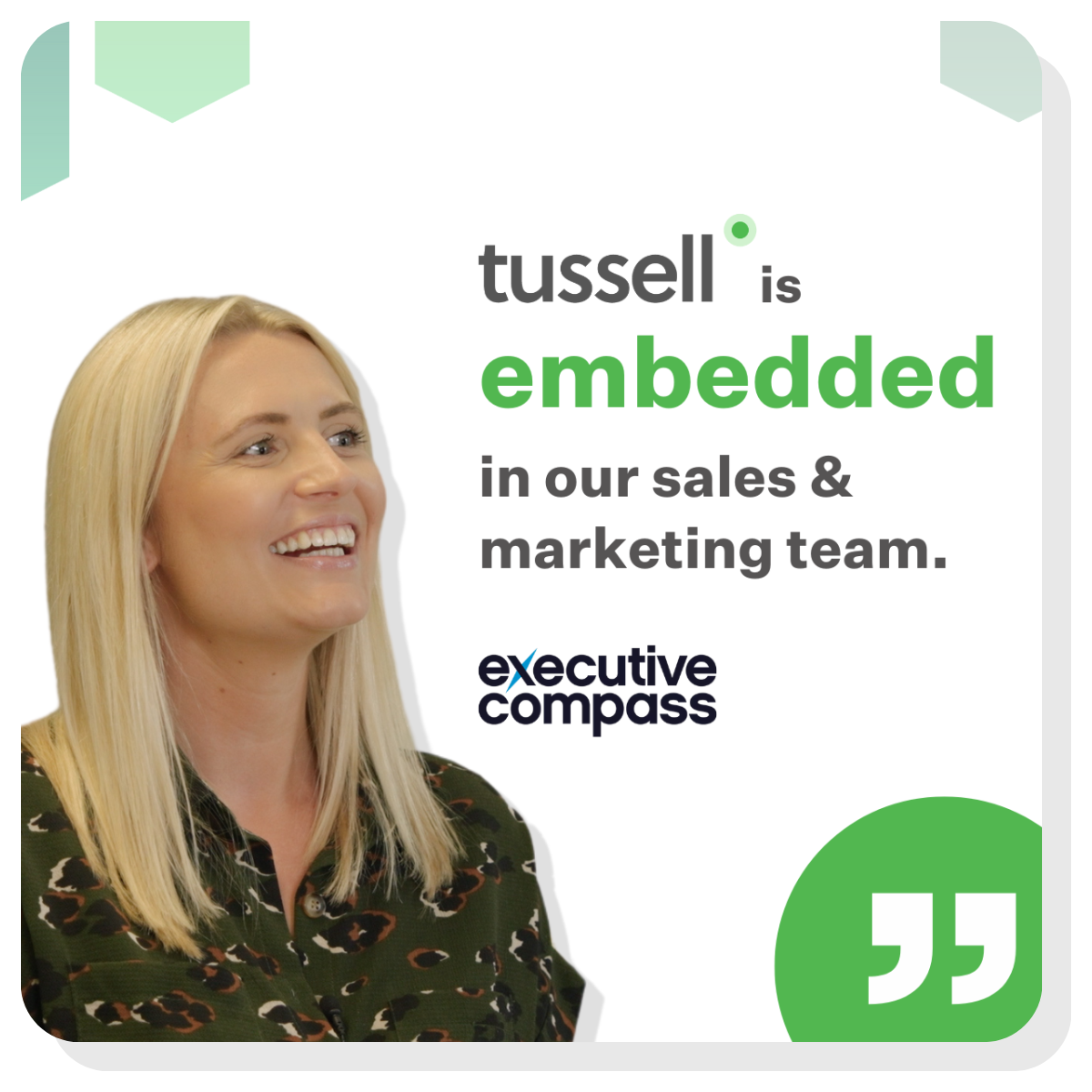
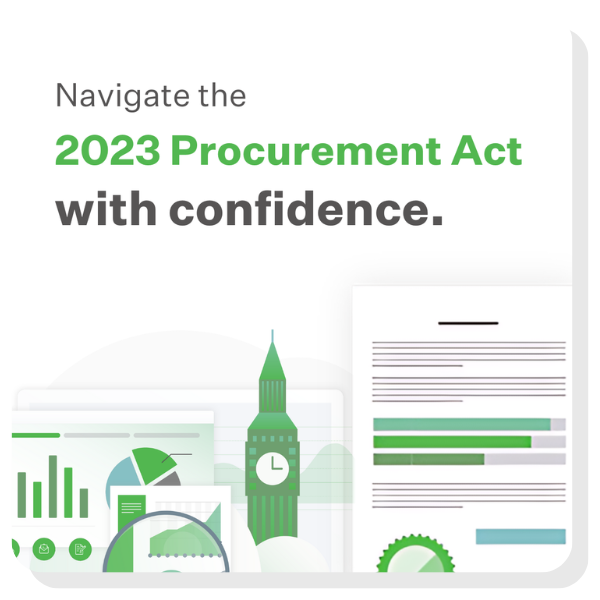
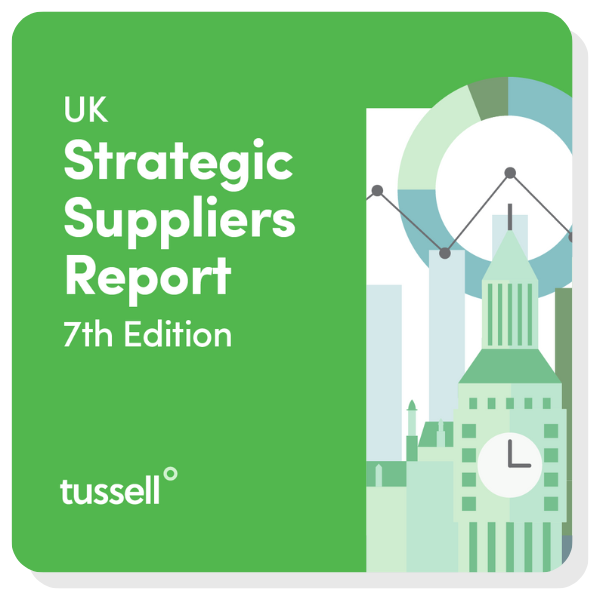
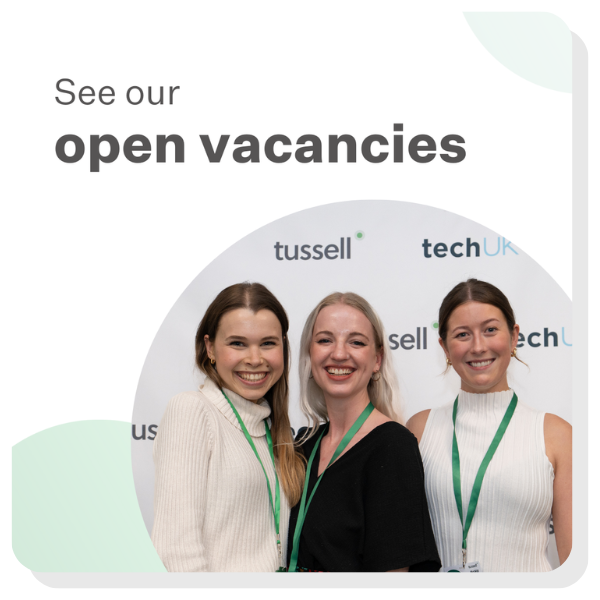

.png?width=80&height=80&name=james%20v2%20(1).png)

